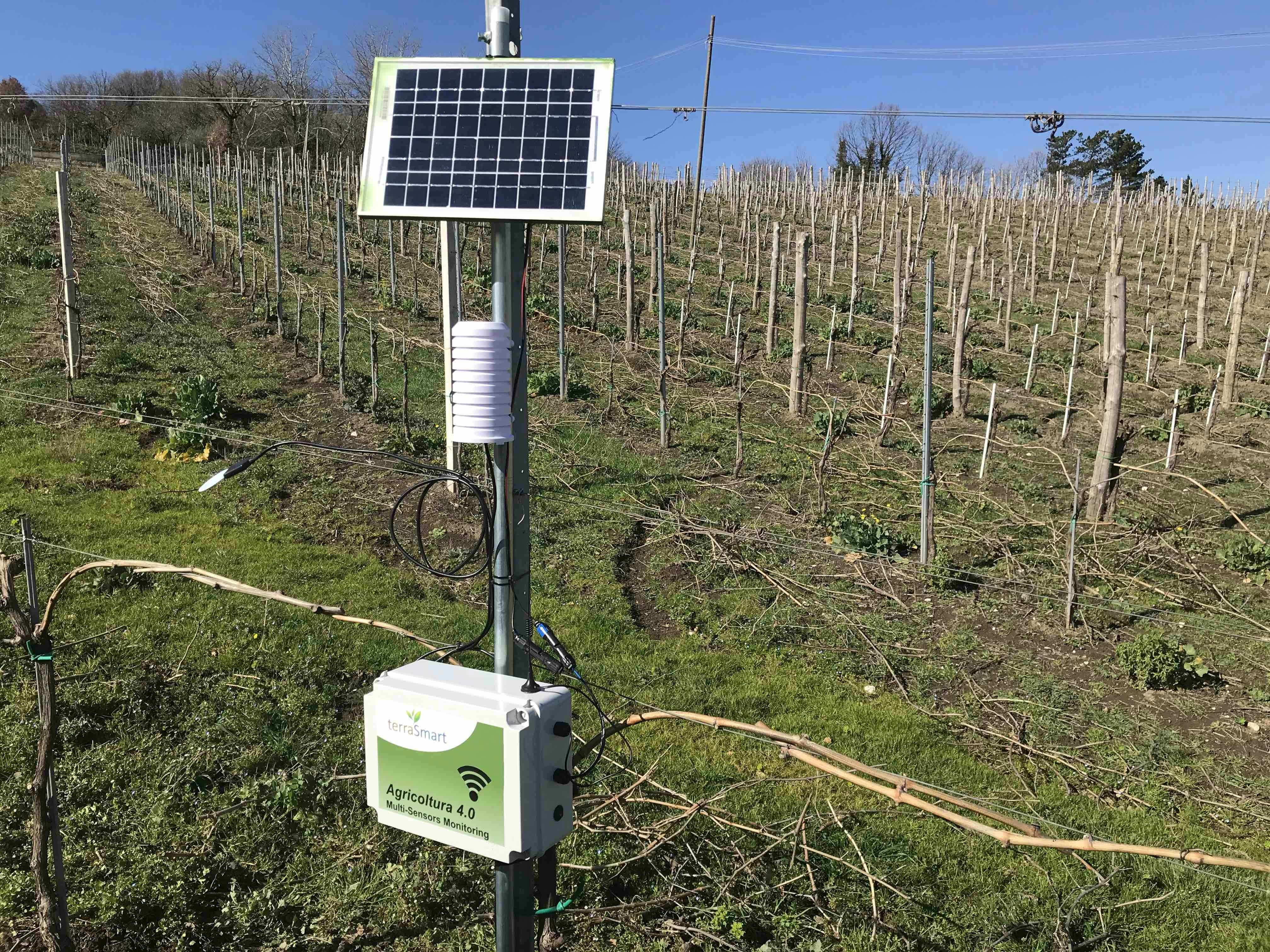To develop an affordable, low maintenance and easy to use crop monitoring system
terraSmart is an Italian startup that designs and develops connected systems and solutions based on smart sensors and IoT technologies for agriculture. terraSmart customers are mainly arable farmers looking for smart, efficient and highly customized solutions to maximize their value chain.
Farmers main aim is to increase crop yields, while at the same time reducing water and chemical consumption. Through actively monitoring the plants, soil conditions and weather the solution can enable farmers to produce healthier and sustainable crops, by lessening the impact on the crops of unpredictable variables like pests, disease and adverse weather. The final goal is to reduce operational costs and offer a high quality product at a very competitive price.
Reliability of the systems deployed in the field was a real technical challenge, as they must work 24/7 in remote and harsh conditions with limited manual intervention. All of this had to be achieved while keeping the final price at an acceptable market level. Bridging the digital agriculture knowledge gap by the farmers, is the second big challenge.
MICHELE CORTINA, CEO AND FOUNDER
24/7 reliability, the monitoring system should be efficient and effective with limited maintenance. Operational in remote areas. Price, to optimize the whole value chain, from farmer to end consumer. Ease of use, be simple to operate and intuitive as most farmers are not expert in digital technologies.
All of the above had to be delivered in a fast time to market for the startup to be successful.
A real-time monitoring solution based on Arduino nodes
terraWeb is an online portal that enables farmers to monitor their crops and take real time decisions to optimize their productivity. The portal receives sensor data from terraSense’s sensors via Arduino nodes, interprets the data and then visualises them graphically.
The solution is based on digital and analog sensors, that collect information relating to both the soil and plant conditions (e.g. Leaf temperature, soil moisture level etc), and the local climate (e.g. air humidity, solar radiation level, wind speed and direction etc). The inclusion of the Arduino MKR 485 Shield enables the communication between the Modbus sensors and the terraWeb portal, thanks to the Arduino libraries.
We decided to use the Arduino MKR GSM 1400, because we wanted to take advantage of the cellular network and make our solution effective in remote areas covered only by the 2G network. For those customers who would use the solution in a location with both a readily available power source and Wi-Fi we adopted the Arduino MKR WiFi 1010 for it’s speed benefits.
MICHELE CORTINA, CEO AND FOUNDER

terraWeb is an extremely easy to use solution, based on a robust hardware that requires low maintenance. Farmers can not only control the state of their crops, but they can also customize notifications from the portal, and activate corrective measures. The constant availability of data combined with the high reliability level enables farmers to trust the solution when determining how to minimize the consequences of unpredictable climatic and environmental conditions, improving the quality of their products and the profitability of their crops.
Soil and technology: an amazing combination of heritage and innovation. We developed a solution ready to help our farmers - Arduino made this possible in the smartest and most efficient way.
MICHELE CORTINA - CEO AND FOUNDER
terraSmart now serves commercial vineyards, orchards and sweet pepper farms in the Southern Italian regions of Campania and Basilicata. Providing each customer with a set of 5 variables, at a frequency of between 5 to 15 minutes, dependent upon the specific needs of each crop type . The company is now successfully expanding business into Africa and South America.